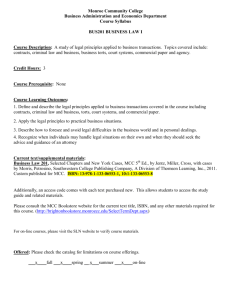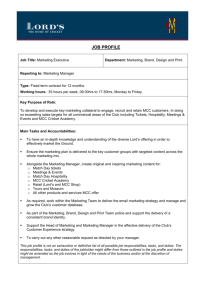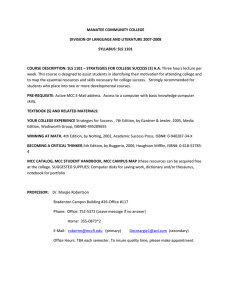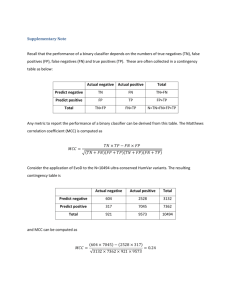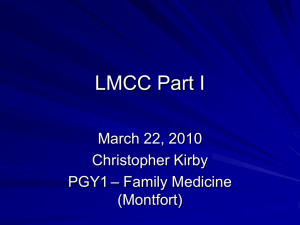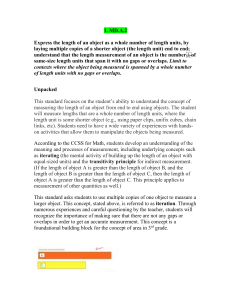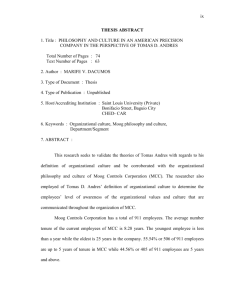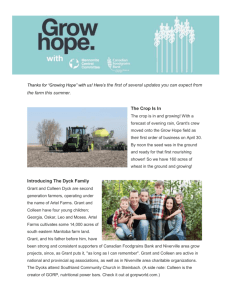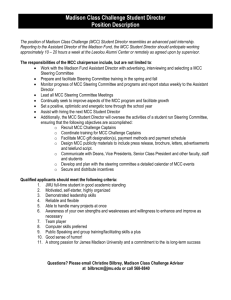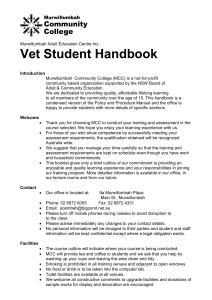Nov21_Math1stUnit4Update
advertisement
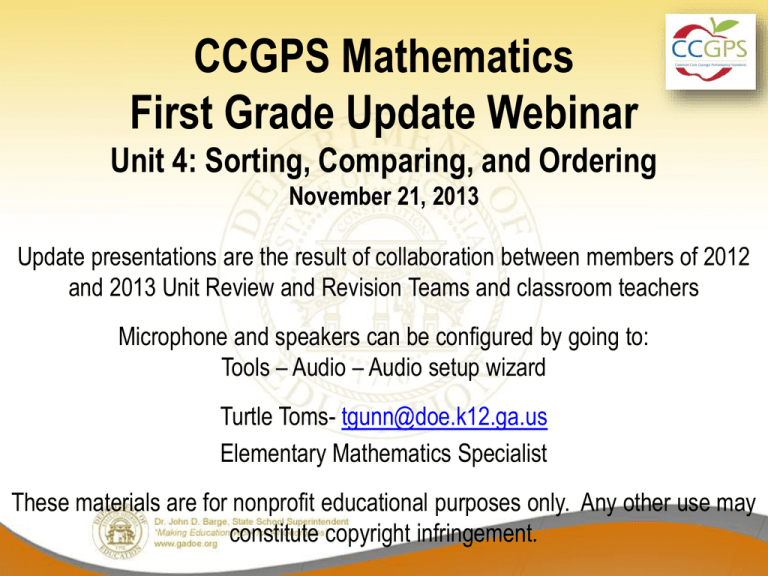
CCGPS Mathematics First Grade Update Webinar Unit 4: Sorting, Comparing, and Ordering November 21, 2013 Update presentations are the result of collaboration between members of 2012 and 2013 Unit Review and Revision Teams and classroom teachers Microphone and speakers can be configured by going to: Tools – Audio – Audio setup wizard Turtle Toms- tgunn@doe.k12.ga.us Elementary Mathematics Specialist These materials are for nonprofit educational purposes only. Any other use may constitute copyright infringement. FIRST GRADE UNIT FOUR SORTING, COMPARING, AND ORDERING STANDARDS • MCC.1.MD.1 Order three objects by length; compare the lengths of two objects indirectly by using a third object. • MCC.1.MD.2 Express the length of an object as a whole number of length units, by laying multiple copies of a shorter object (the length unit) end to end; understand that the length measurement of an object is the number of same-size length units that span it with no gaps or overlaps. Limit to contexts where the object being measured is spanned by a whole number of length units with no gaps or overlaps. • MCC.1.MD.3 Tell and write time in hours and half-hours using analog and digital clocks. • MCC.1.MD.4 Organize, represent, and interpret data with up to three categories; ask and answer questions about the total number of data points, how many in each category, and how many more or less are in one category than in another. MEASUREMENT STANDARDS • In the original unit, emphasis was on nonstandard units of measure • After reviewing the measurement and data progressions document and looking vertically at what is taught in Kindergarten and 2nd grade, tasks were added and changed to focus more on using standard units of measure interchangeably with non-standard units • A better picture of this can be seen in the unit overview Measurement Trajectory document (pushed out to you, too!) MEASUREMENT TRAJECTORY WHAT STUDENTS KNOW WHEN THEY GET TO US… WIKI QUESTION…KINDERGARTEN MD.3-CLASSIFY OBJECTS INTO GIVEN CATEGORIES; COUNT THE NUMBERS OF OBJECTS IN EACH CATEGORY AND SORT THE CATEGORIES BY COUNT. Classifying vs. sorting STANDARDS • MCC.1.MD.1 Order three objects by length; compare the lengths of two objects indirectly by using a third object. • MCC.1.MD.2 Express the length of an object as a whole number of length units, by laying multiple copies of a shorter object (the length unit) end to end; understand that the length measurement of an object is the number of same-size length units that span it with no gaps or overlaps. Limit to contexts where the object being measured is spanned by a whole number of length units with no gaps or overlaps. • MCC.1.MD.3 Tell and write time in hours and half-hours using analog and digital clocks. • MCC.1.MD.4 Organize, represent, and interpret data with up to three categories; ask and answer questions about the total number of data points, how many in each category, and how many more or less are in one category than in another. FORMATIVE ASSESSMENT LESSON • There is a Measurement FAL • It has been inserted early in the unit, but its use is up to the discretion of the individual teacher based on the needs of his or her students. • 2/3 of the way through the unit is a great place… GOT FALS? WHICH HOLDS MORE, LESS, SAME NEW TASK • Task 2 - Breaking and Making a Ruler • Designed to allow students to explore standard units of measure EXTENDED UNIT OVERVIEW • Additional information in the teaching strategies and other sections because of the changes to the unit • Writing in Mathematics • Number Talks CHANGES TO TASKS • Standards for Mathematical Practice specific to the task with examples • Background Knowledge and Common Misconceptions • Additional Extension and Remediation Activities and Opportunities Feedback What it looks like: http://elschools.org/student-work/butterfly-drafts Feedback http://ccgpsmathematicsk-5.wikispaces.com/ Turtle Toms- tgunn@doe.k12.ga.us Elementary Mathematics Specialist
